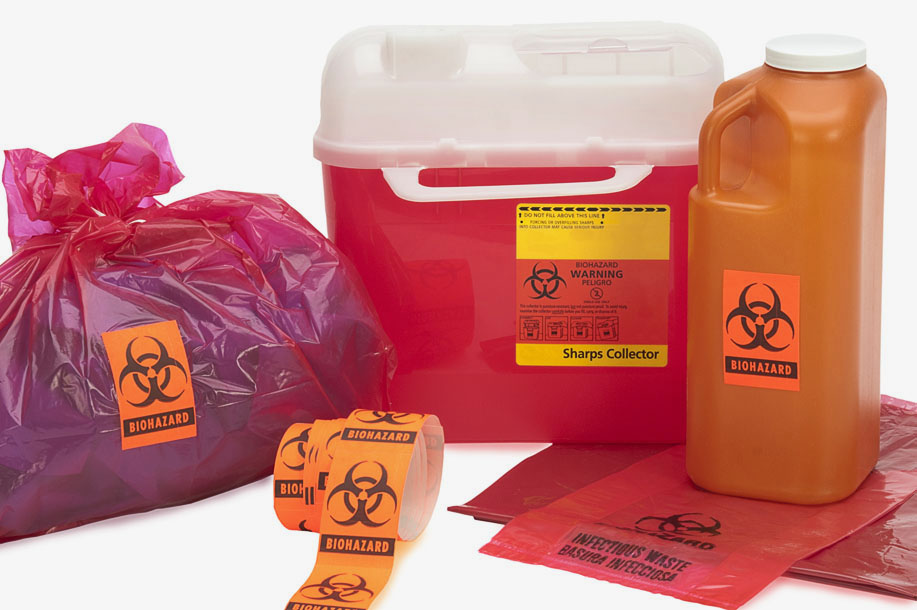Efficient Medical Waste Disposal Services: Guarding Your Center's Wellness
Efficient Medical Waste Disposal Services: Guarding Your Center's Wellness
Blog Article
Accountable Solutions: Understanding Medical Waste Disposal Provider
In the world of healthcare, the appropriate disposal of clinical waste is a vital facet that requires careful factor to consider. As healthcare facilities create different kinds of waste that call for specific handling, recognizing the subtleties of clinical waste disposal services is critical.
Significance of Proper Clinical Garbage Disposal
Appropriate clinical waste disposal is critical in maintaining a sanitary and risk-free environment within medical care facilities. In health care settings, different types of waste are generated daily, consisting of transmittable materials, sharps, ran out medicines, and chemical materials. If not appropriately managed, these wastes can pose severe risks to both medical care employees and the general public. Improper disposal can cause the spread of infections, injuries from sharps, contamination of water resources, and harm to the environment.

Sorts Of Clinical Waste
Within health care facilities, a diverse range of waste products classified as medical waste is created, each requiring details handling and disposal techniques. Pathological waste, which includes cells, organs, and body components, necessitates proper disposal to respect the self-respect of the deceased and stop any kind of biohazards. Understanding the various types of medical waste is crucial for healthcare centers to apply effective waste management approaches and protect public health and the environment.
Regulations and Compliance
Medical care centers must stick to stringent policies regarding the handling and disposal of clinical waste to make certain conformity with lawful demands and secure public health. These laws are implemented to stop the spread of infections, safeguard the atmosphere, and maintain the safety and security of medical care employees and the basic public. Different governing bodies, such as the Environmental Security Agency (EPA), the Occupational Safety And Security and Health Administration (OSHA), and the Division of Transportation (DOT), have certain standards that healthcare centers should follow.
To follow these guidelines, health care centers should correctly segregate, store, transportation, and throw away different kinds of clinical waste. This consists of sharps waste, contagious waste, hazardous waste, and pharmaceutical waste, each requiring details dealing with procedures. Facilities should also maintain precise records of waste generation and disposal to demonstrate compliance during assessments.
Non-compliance with clinical waste guidelines can result in serious penalties, penalties, and damages to the facility's track record. It is crucial for health care centers to remain notified regarding the most current laws and apply robust compliance procedures to protect public health and the atmosphere.
Advantages of Specialist Disposal Providers
Involving professional medical waste disposal solutions offers health care facilities a reliable and dependable solution for handling harmful products. These solutions use qualified professionals who are well-versed in managing various types of medical waste, making sure appropriate partition, product packaging, disposal, and transport. Medical Waste Disposal Services.
Moreover, expert disposal solutions make use of cutting edge devices and follow sector best techniques to minimize environmental impact and minimize the threat of contamination. This not only promotes a much safer workplace for medical care personnel but you could check here also adds to general public health and safety and security. Furthermore, contracting out clinical waste disposal can result in cost savings in the long run by eliminating the demand for internal administration and disposal systems.
Lasting Practices in Healthcare

One secret sustainable practice in healthcare is waste decrease. By applying strategies to lower unnecessary packaging, single-use products, and total waste generation, medical care centers can substantially decrease the amount of waste sent out to landfills or incineration. Additionally, reusing programs for materials like paper, plastic, and glass can further reduce the ecological impact of health care operations.

Conclusion
In conclusion, proper clinical garbage disposal is essential in keeping a healthy and balanced and risk-free atmosphere for both health care employees and the public. Comprehending the different kinds of clinical waste, complying with policies and compliance criteria, and making use of specialist disposal services are crucial steps in responsible waste monitoring. By taking on lasting practices in health care facilities, we can lower ecological impact and guarantee the wellness of all individuals included in the medical care sector.
As healthcare centers produce different kinds of waste that require specialized handling, comprehending the subtleties of clinical waste disposal solutions is paramount.Within healthcare facilities, a diverse selection of waste products classified as medical waste is created, each requiring particular handling and disposal approaches. Recognizing the different kinds of medical waste is essential for healthcare facilities to carry out efficient waste administration methods and secure public health and the setting.
By applying techniques to lower address unnecessary packaging, single-use items, and total waste generation, healthcare facilities can substantially lower the amount of waste sent out to my blog garbage dumps or incineration. Comprehending the different kinds of clinical waste, following laws and compliance standards, and utilizing specialist disposal services are necessary actions in responsible waste management.
Report this page